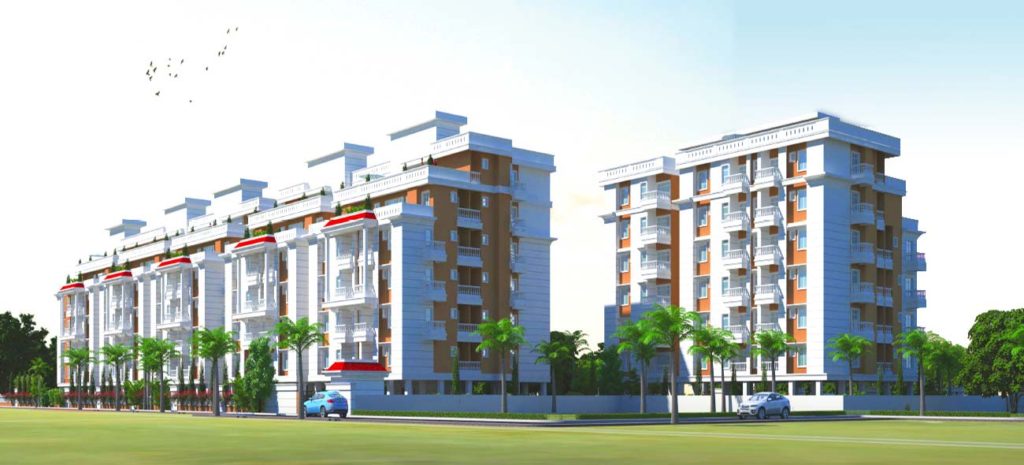What is RERA?
Benefits of RERA are many. Owning a home is every person’s dream. Real Estate Regulations Act (RERA) introduced in 2016 is meant to safeguard that dream of every Indian.
Real estate is an investment of a lifetime and not everybody can afford a home for themselves in the metros, tier I and tier II cities like Guwahati in Assam. To add to the misery, every developer / builder earlier had his own norms and standards. They followed different practices and structured the builder-buyer agreement in a manner that favoured the builders. The common buyer had very limited rights.

Real Estate Regulation Authority (RERA) was instituted to protect and safeguard the rights of the common man who invests his lifelong savings in buying a home. RERA specifies certain norms for building and development of real estate, which will enhance the transparency in transactions in the real estate sector. Benefits of RERA include several rights to the home buyers and has also specified certain rules and regulations to be followed by all builders/ developers. It also specifies the creation of an Appellate Tribunal for each state to understand and tackle complaints by home buyers.
10 Major Benefits of RERA Act
Here are the 10 major benefits of RERA act for the common home buyers:
Standardized Carpet Area:
Earlier, the carpet area on which the builder calculated the price of the property was not defined. Every builder/developer had his own method of calculation of the Carpet Area. Now, the method of calculation is defined and standardized by the RERA Act and the same formula has to be used by all builders and developers.
The definition of carpet area as given by the law is:
Carpet area means the net usable floor area of an apartment, excluding the area covered by the external walls, areas under services shafts, exclusive balcony or verandah area and exclusive open terrace area, but includes the area covered by the internal partition walls of the apartment.
This definition is a direct benefit of RERA and has an impact on the Real Estate prices, as most developers charge on the basis of carpet area. Builders compute the price of a property by multiplying the carpet area by the rate per square feet.
Rate of interest on default:
In case of default in payment by the buyer or default in completion of the project by the builder, the
rate of interest to be paid shall be the same for both parties. Earlier, the interest burden on the home buyer was higher than the interest that the builder agrees to pay in case of construction delays. There was no parity in the interest to be paid by both the parties. The RERA Act has now clearly specified that the interest rate shall be the same for both the parties.
Lesser risk of builder going bankrupt
A developer usually has several projects, which are being constructed simultaneously. Earlier builders were free to divert the funds raised from Project A to fund the construction of Project B. Now, this would not be possible after the introduction of RERA. The builder is liable to deposit 70% of the amount realized in for the project in a separate bank account. He can withdraw from such account only on the basis of completion of project, which shall be certified by a civil engineer, architect and a chartered accountant in practice.
RERA will ensure that the builders use funds collected for a project, for the same project and this will reduce their chance of getting bankrupt. It will also ensure timely completion of the property as the funds are being used in the right project.
Advance Payment:
The builder can take not more than 10% of the cost of the flat, apartment or villa as advance or application fees as the case may be, before entering into an agreement of sale.
Buyer Rights as Benefits of RERA
The home buyer enjoys various rights under this act. They are detailed in the following paragraphs explaining the benefits of RERA.
Right of the buyer in case of false promises:
In case there is a mismatch in the commitments made by the builder and the actual project, the buyer
has the option to withdraw from the project, wherein he is entitled to full refund of the amount paid as
advance or otherwise along with interest and claim compensation.
Right of the buyer in case of Defect after possession:
The builder shall rectify any defect free of any charge if the defect is discovered within 5 years. The defect can be a structural defect or any defect in workmanship, quality, provision, or service. The builder will rectify all such defects at no extra cost within 30 days. If the builder fails to do so, the buyer shall be entitled to claim compensation for the same.
Rights of the buyer in case of delay in possession:
If the builder fails to complete the project on the due date of completion, then the buyer has two options:
- To withdraw from the project, wherein he shall be entitled to full refund along with interest payable from the due date of completion till the amount is refunded.
- To continue with the project till the completion, wherein he will be entitled to compensation along with interest payable from the due date of completion of project till the project is actually completed.
Rights of the buyer in case of defect in Title:
Even after taking possession of the property, the Rights of the buyer are protected. If the buyer finds a defect in the title of property, then he or she can claim compensation from the builder. There is no time limit within which the buyer have to report the defect.
Right to information:
The buyer is entitled to all the information related to the project. The right to information clause gives him that privilege. He can ask details about the plan layout, execution plan, stage wise completion status etc.
Appellate Authority for Grievance Redressal:
The home buyer can take the builder to the state authority set up under RERA for any grievances. It has the power to redress all grievances. The buyer can file an appeal with the Appellate Tribunal if he is dissatisfied with the order. The tribunal will redress your case within 60 days, or shall record the reasons of such failure.
If the builder wants to appeal against any order, he shall have to deposit to the Appellate Tribunal against the order of the Authority, then he shall have to deposit at least 30% of the penalty, or such higher percentage as may be determined by the Appellate Tribunal. He may also need to pay the total amount to be paid to the home buyer including interest and compensation imposed on him, if any, or with both, as the case may be, before the said appeal is heard.

